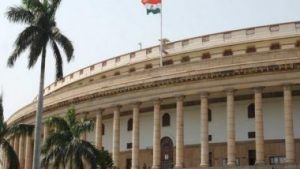Special Session Of Parliament:

The government has announced a “special session” of Parliament from September 18 to 22, and this has raised questions about the legislative agenda for the session.
- The term “special session” is not defined in the Constitution but is often used for sessions convened for specific occasions or commemorating milestones.
- The term “special session” may refer to sessions convened for specific occasions or purposes, often with limitations on parliamentary procedures. Presiding officers chair these sessions.
- Article 352 of the Constitution mentions a “special sitting of the House” in the context of a Proclamation of Emergency.
- If Parliament is not in session, one-tenth of Lok Sabha MPs can request a special meeting to disapprove the Emergency.
- The government, through the Cabinet Committee on Parliamentary Affairs, decides when Parliament meets, including session dates and durations.
- The President is informed of the Committee’s decisions, and MPs are summoned for the session.
- Article 85 mandates that there should not be more than a six-month gap between two parliamentary sessions.
- This provision was adapted from the Government of India Act of 1935
- India does not have a fixed parliamentary calendar.
- Traditionally, Parliament meets for three sessions in a year:
- Budget Session (February-May)
- Monsoon Session (July-August)
- Winter Session (November-December)




